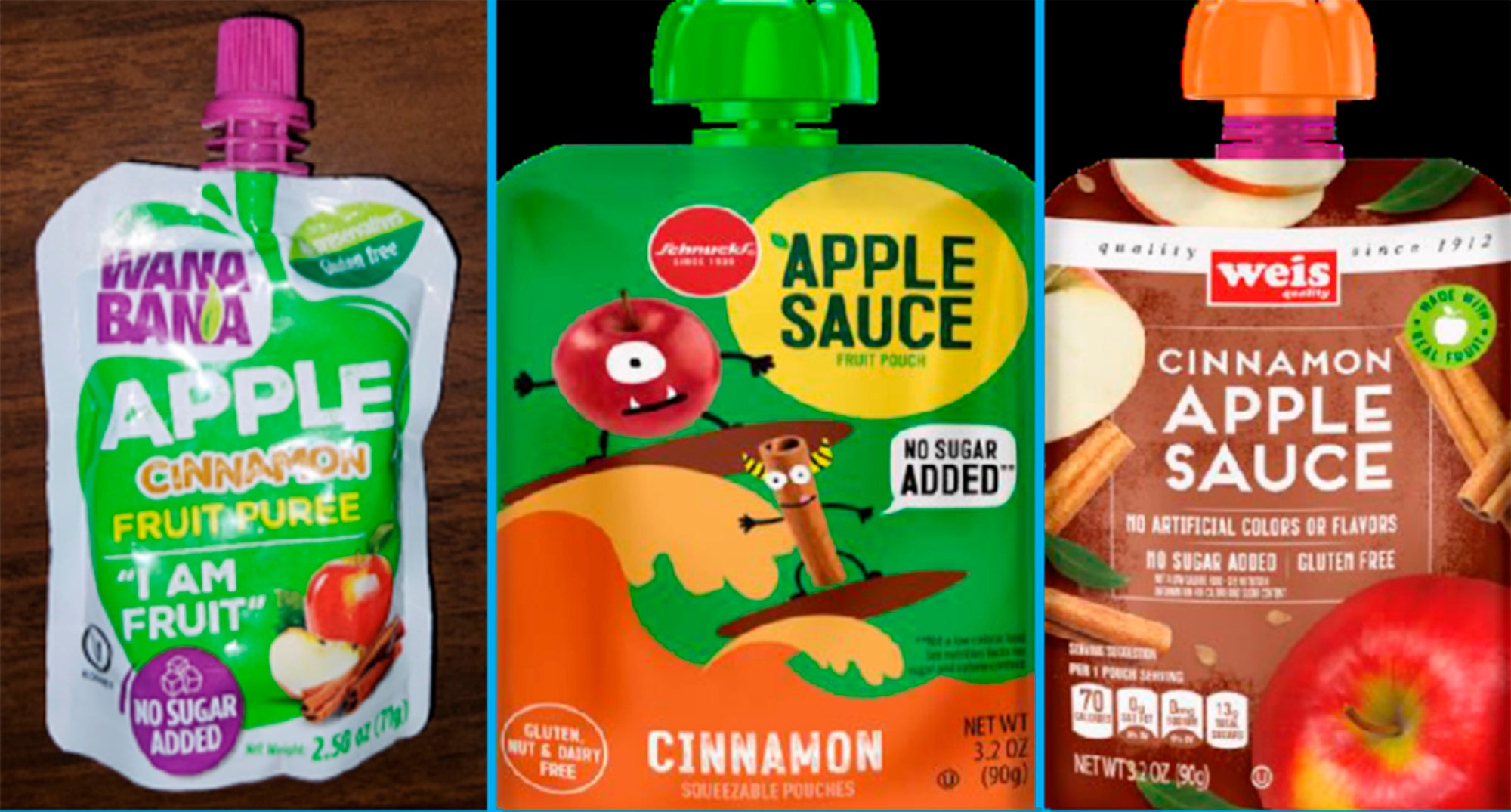Lead in applesauce poisoned children in 44 states, revealing gaps in food safety system
Records show the US Food & Drug Administration did not inspect the contaminated pouches at the US border

New documents have shown how easy it was for cinnamon-flavoured applesauce pouches tainted with lead to make it into supermarkets across the United States, causing lead poisoning in more than 400 people.
According to The New York Times and the nonprofit health newsroom The Examination, checkpoints meant to prevent contaminated products from reaching consumers failed, with the manufacturer at the centre of the scandal going without a US Food and Drug Administration inspection for five years.
The FDA said earlier this month that children across 44 states had been affected by the poisoning, likely caused by tainted cinnamon processed in Ecuador and blended into applesauce pouches which were then shipped to the US.
Some pouches, sold under the brand name WanaBana and as generic supermarket branded versions, contained extremely high levels of lead and the element Chromium, which can be fatal in high doses.
Both chemicals were likely in the cinnamon when it was processed in Ecuador. While the FDA does not have the power to examine foods elsewhere, its officers can check foods arriving at the US border.
The documents, seen by the Times and The Examination, showed “no indication” that the sauce pouches were tested on arrival at ports in Miami and Baltimore.
Private auditors hired by importers also appeared to have allowed the pouches in without much in the way of testing. Records showed that one auditor gave the applesauce maker, Austrofood, an A+ safety rating in December after reports were already coming in about children being poisoned.
High levels of lead in the blood can cause brain damage, slow down a child’s development and leave them with hearing and speech problems, according to the Centers for Disease Control and Prevention (CDC).
“It’s amazing in a bad sense what a catastrophic failure this was,” Neal Fortin, director of the Institute for Food Laws and Regulations at Michigan State University, told the outlets. “Largely, the food supply regulatory system is based on an honour system.”
The documents showed that the manufacturer had a plan to test for contaminants, but that lead was not on its list of possible things to check for. FDA regulations also do not explicitly require companies to test for it.
Federal inspectors last checked on Austrofood in 2019. At the time, the company was not exporting cinnamon to the US, so it is unlikely that the spice was factored into that visit.
The original exporter of the contaminated cinnamon, Sri Lanka-based Samagi Spice Exports, has never been inspected by the FDA, records showed.
The reports have raised questions about the FDA’s ability to keep up with demand, with figures showing inspectors carried out around half the border checks seen a decade ago, while only around 1,200 overseas inspections were conducted out of the 19,000 target set for the agency.
The FDA told The Independent that it takes its responsibility to food safety very seriously.
“The agency continues to use all available authorities and work closely with international partners to safeguard the complex, global food supply chain,” a spokesperson said. “Those who grow, produce, pack, hold, import and transport our food are taking concrete steps every day to reduce the risk of contamination under rules established by the FDA.
“In particular, under the law that overhauled the nation’s food safety system, companies have the responsibility to take steps to assure that the products they manufacture are not contaminated with unsafe levels of heavy metals, and the agency’s job is to help the industry comply and hold those who evade these requirements accountable, as appropriate.”
The spokesperson added that its investigation was ongoing and that, once completed, the agency will look to make any changes that would prevent this type of incident from happening again.
Join our commenting forum
Join thought-provoking conversations, follow other Independent readers and see their replies
Comments
Bookmark popover
Removed from bookmarks